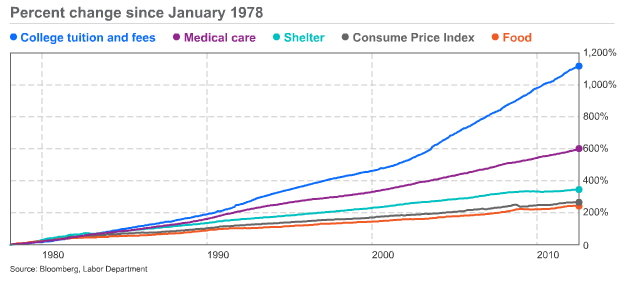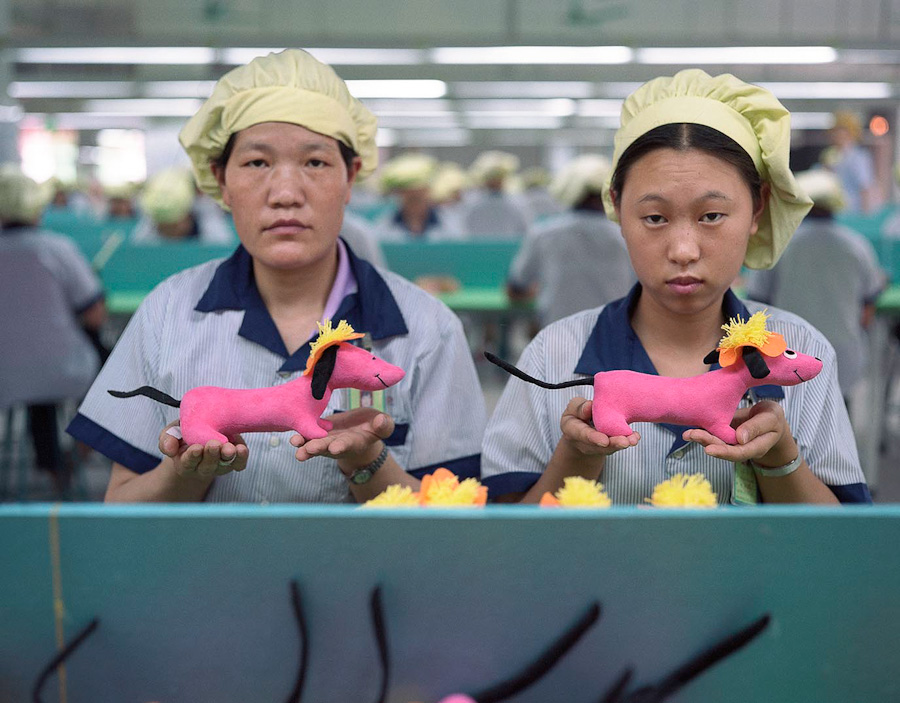When it really comes down to it, we don’t actually need an economy. It is not a requirement for human life. We could simply do as our ancestors, gathering nuts and berries and occasionally feast on a wild boar. It’s even been said that hunter/gatherers only worked 4 hours per day. So why even deal with a messy thing like economics? Well, eventually a hunter figured out that if he traded some meat for a sharper spear, he could kill more wild boars. A gatherer figured out that by trading some berries for a knife, he could collect more berries. It turns out that doing things like making knives and spears can make our lives better – and that’s worth sharing some of our resources for.

It’s been suggested that early human trading actually killed off the Neanderthals, who couldn’t compete because of it.
While the skilled tool-maker might not be hunting or gathering, he’s still being productive. Being productive moves us forward as a civilization and as a species. When you boil it all down, the economy is nothing more than a complex system that motivates people to be productive.
I find it curious that the American dream is to live a middle class existence working 40 hours per week and retiring at sixty something. Comparatively speaking, this may seem great for some people, but I’ve always set my eyes on a higher prize. For others, the American dream might be to become rich. Having a lot of money is great too, but I know a number of wealthy people who work 80 hour weeks. What kind of dream is that? Perhaps a bigger American dream is to become so rich that you never have to work again, and you can simply live your life however you want.
To live any version of the American dream, you have to be productive. You have to create value for others or for society. (It can take years for some people to learn this simple secret, especially in the internet marketing field where wanna-be entrepreneurs are always looking for a quick scheme to basically steal value from popular trends.) How much value you can create determines how much money society will be willing to give you. Therefore, if you want to increase the money you have, you can either increase the amount of value you create in any unit time (say, an hour), or you can increase the amount of time you spend creating value. In short: either work longer or work harder.
One way to do this is by increasing your own value as a productive contributor to society. In my early adulthood, I saw people do this in two different ways. Some people would increase their productive hours by working more than one job. Minimum wage might not be much, but if you have 2 or 3 minimum wage jobs, you can still get by. I’ve tried this. It sucks.
Other people would increase their value per unit time by becoming educated.

One way to increase your value
An educated person has the ability to do more complicated and difficult tasks, and therefore can create more value for society. Everyone should become educated.
It makes you a better person, and it makes us collectively better as a species. Still, I can’t help but feel like there’s something missing from this equation. You are still limited by the number of hours that you have in a day. While you can significantly raise the amount of value you create in an hour, you will always only have roughly 16 waking hours in a day, so your productivity, and therefore your income, can only increase linearly.

Educating yourself is becoming more and more unattainable and the actual cost of living is rising, making this method even less useful.
There’s another method, and it’s the one that creates most small businesses. If you have a solid system that creates value, and also money, then you can increase the total number of productive hours by outsourcing those hours to other people. If you’re smart about it, and you use outsourcing sites like Freelancer.com and Elance.com, you can outsource tasks fairly cheaply. With outsourcing, we now have a new factor in the equation. You have to pay people to do work for you. That means you have to feed value into the system. This is only worthwhile if the value created by the system is greater than the value you feed into it. Or to put it more obviously, your outsourced business needs to make you more money than it costs you.

Obviously Elance.com doesn’t look like this, but the method is the same. (Photographer Michael Wolf has taken incredible shots of factory workers, ie, outsourcing.)
But have you ever tried outsourcing? If you have, you know its potential pitfalls are great, many, and varied. Someone has to manage those people. It sounds easy enough, but managing people can be a difficult and tedious job. Even if you hire a manager, you’ll still have to manage the manager. It creates a whole new reason to need productivity – that is, the productivity of managing others. All this is added into our original equation of how to create a net value for society. The good news is that this method can potentially increase value exponentially. If a system creates enough value, then you can continually hire more and more people to run it.
But there’s one more way to create value, and it’s the one that gives us the best option. Granted it won’t apply in every situation – there will always be times and places that the other two methods are necessary. If you haven’t guessed yet, the third method is automation. Automation allows you to take a productive system and remove the burden of labor from you or your employees. An automated system can run 24 hours, 7 days per week and never require a paycheck. The value that it creates is equal to the value of the system that you automate with it. The number of productive hours is as many hours as you run a process times the number of instances of the process you have running. This means that the productivity can run exponentially, but without all those nasty negative variables that we had to mess with in outsourcing.
Additionally, since automation is not limited by human factors, the exponential growth is significantly faster than with outsourcing. The only limitation is the extent to which technology can actually automate human tasks. There’s a lot that technology can do, but, for the moment at least, humans are still much smarter than machines.
As technology increases, more and more productivity will come from machines. This has already had, and will continue to have, profound effects on our lives and on the economy. As humans living in the first part of the 21st century, we may do well to hop on that wave early. There’s an incredible amount of opportunity out there for those who are willing to venture out into the lush wilderness. Go and figure out how to make machines do all your work for you. You’ll free your time, make your entire income on autopilot , and maybe even help to push our society towards a more automated, more perfect economy.
